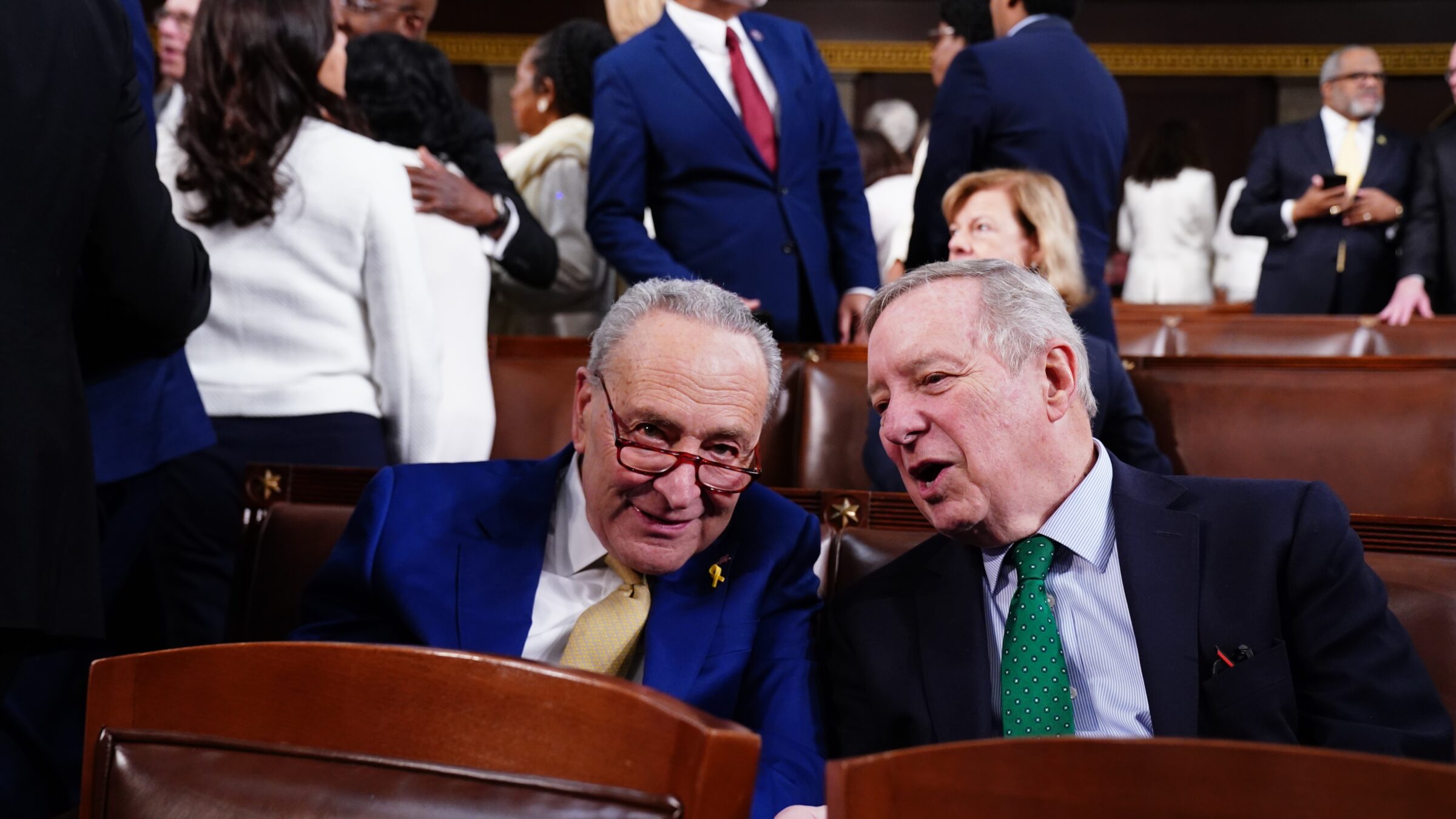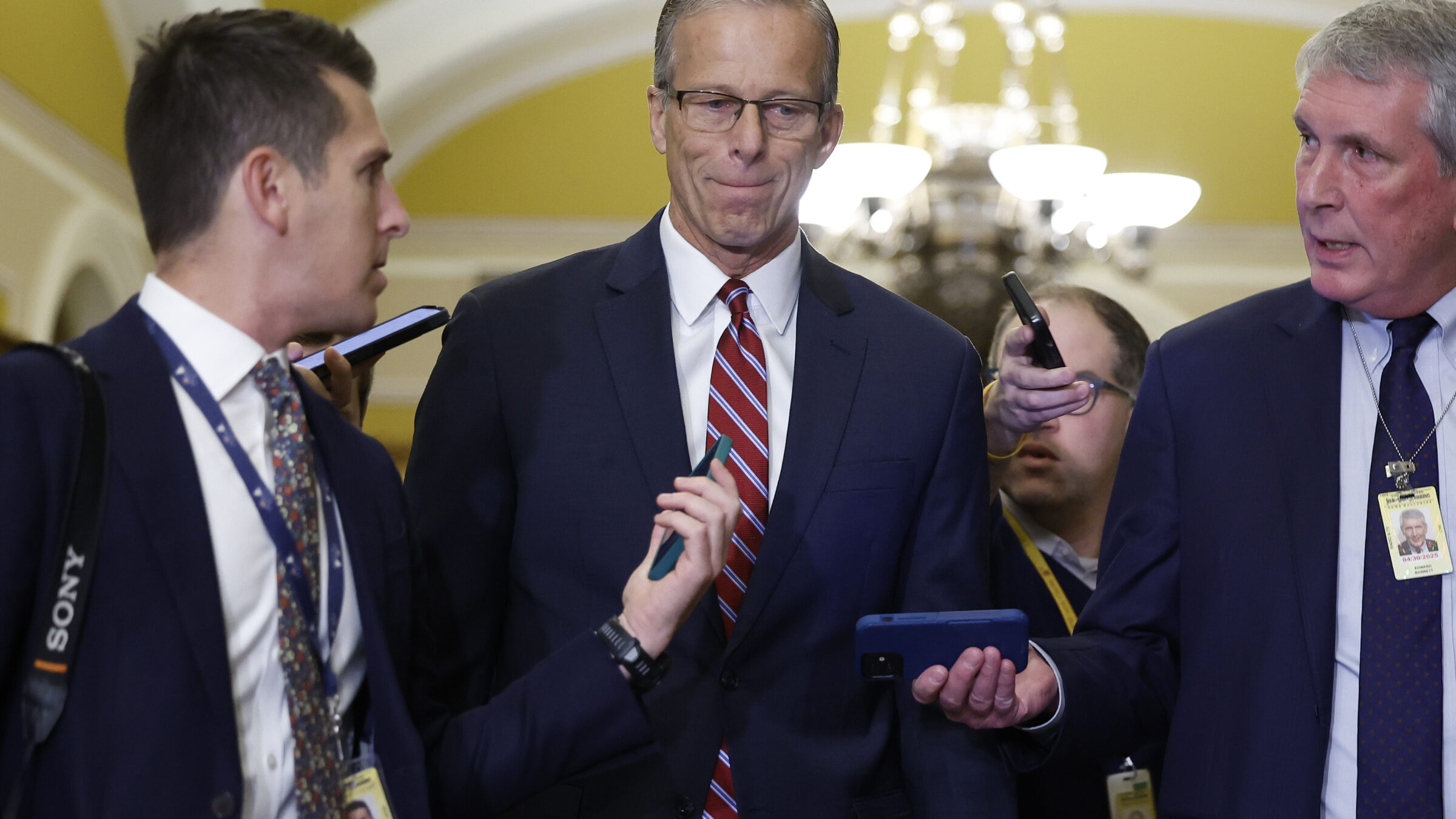For several brief, glorious days, Senate Democrats were doing the lame-duck session right. As the clock ticked down on the 118th Congress, Majority Leader Chuck Schumer took advantage of Republican absences from the Senate floor to hold confirmation votes for several former public defenders and civil rights lawyers whom President Joe Biden had nominated to the federal bench.
Senate Republicans, as you might expect, used every available tool to slow the process down, pushing some debates and votes well past midnight. Their efforts were urged on by President-elect Donald Trump, who commanded his colleagues to “hold the line” earlier this week. “No more Judges until Inauguration Day!” he said. Given that these same Republicans spent the last lame-duck session racing to confirm Trump nominees after his election loss in 2020, however, Democrats correctly ignored these complaints, jumped through the hoops set out for them, and eventually pulled Biden’s nominees across the finish line.
This spate of confirmations was a welcome reminder not only of the value that professional diversity brings to the bench, but also the fact that for the next three weeks or so, Democrats do, in fact, still have the power to put people on it. The confirmations of lawyers like Sarah Russell, Mustafa Kasubhai, and Amir Ali helped to both close the gap between Biden and Trump, who appointed 234 judges in four years, and also to rebalance a judiciary full of former prosecutors and corporate lawyers with new judges who better understand the lived experiences of the many less-powerful people who will appear before them in court.

(Photo by Shawn Thew-Pool/Getty Images)
Then, on Thursday, this slow-but-steady parade of confirmations came to—well, if not a grinding halt, a considerable deceleration. Per Fox News, Democrats and Republicans in Senate leadership had arrived at a late-night bargain: Going forward, Republicans would stop trying to hamstring the process for four pending district court nominees. In exchange, Democrats agreed to stand down on Biden’s last four appeals court nominees: Julia Lipez in the First Circuit, Adeel Mangi in the Third Circuit, Ryan Park in the Fourth Circuit, and Karla Campbell in the Sixth Circuit. By striking a deal, Fox News says, Senate Republicans had heroically preserved Trump’s power to fill “four crucial appellate court judges in his second administration.”
Shortly after Fox News’s story broke, Schumer released a statement confirming the news in broad strokes, but disputed its real-world significance. “The trade was four circuit nominees—all lacking the votes to get confirmed—for more than triple the number of additional judges moving forward,” he said through a spokesperson. In other words, Democrats only surrendered in the fights that Schumer doesn’t think they have numbers to win, and in exchange, they get to win far more than the four district court seats that Fox News originally reported.
It’s true that some of these nominees face, at best, an uphill battle to confirmation. Mangi’s nomination has languished for a full year now, thanks to a vile Islamophobic smear campaign that Republicans used to scare off a critical mass of Democrats from supporting his confirmation. North Carolina Republican Senator Thom Tillis has publicly insisted that Park doesn’t have enough Democratic support to get confirmed. It is not really clear whether Tillis is bluffing here—he still hasn’t named any names—but if he isn’t, in a practical sense, the number of seats the Democrats “surrender” in this deal might be closer to two.
Or, as George Washington University Law School professor JP Collins suggests, zero. If confirmed, Park and Campbell would replace Judges James Wynn and Jane Bransetter Stranch, two Democratic nominees who announced that they would take senior status upon confirmation of a successor. If Schumer is right that Lipez and Mangi don’t have the votes—and if Wynn and Stranch, as is their prerogative, were to rescind their retirement and stay on the job in order to keep Republicans from filling their seats—the “deal” doesn’t really give Trump “anything he wasn’t already going to get anyway,” Collins says.
Thus, Fox News’s splashy headline, which conspicuously frames the facts in the most generous possible light for Republicans, might be intended for an audience of one: Trump, who has spent weeks raging at Senate Republicans for their impotence and incompetence. If you are incoming Majority Leader John Thune, and you’ve already gotten off to a rocky start with the boss, it is very useful to be able to show Trump a story from a friendly outlet that’s all about how you single-handedly stopped the Biden judicial confirmation machine, just like he asked.

(Photo by Kevin Dietsch/Getty Images)
At the same time, it’s not right to say that Senate Democrats gave up nothing here, either. Again, whether a nominee “has the votes” depends as much on which senators are in Washington as it does on how many senators support them. For example, when the Senate confirmed Embry Kidd to a seat on the Eleventh Circuit earlier this week, the count was 49-45. Much to the fury of conservative activists, five Republican senators who could have stopped it were out of town.
Against this backdrop, the deal is basically a promise from Senate Democrats that they won’t even try to confirm nominees in this manner anymore, in exchange for Republicans’ guarantee of smooth sailing on district court nominees that remain. Going forward, Schumer is done whipping votes, and/or hunting for windows of opportunity when he might be able to cobble together a plurality of whoever’s on the floor that day. He won’t be publicly lambasting Republicans for their intransigence, or calling out Democratic holdouts for their cowardice. Nobody on either side of the aisle has to worry about clocking late nights or long weekends to fight for or against confirmation, as the case may be. And if the Senate wraps up the rest of its business before the chamber adjourns on December 20, Democrats would have no incentive to keep working, and would be free to leave Washington for the holidays a few days early.
This is, to use a technical term, a bummer. The nominees that Democrats sacrifice in this deal would have brought valuable, underrepresented experiences to the bench, so naturally, Republicans demonized them from the jump. Campbell, for example, is a labor lawyer who once served on the board of a workers’ rights nonprofit; at her confirmation hearing, Texas Senator Ted Cruz asked why she “spent a decade as a legal adviser to an openly Communist and Marxist organization.” Mangi, who would be the first Muslim American appeals court judge, once sat on the board of a Rutgers-affiliated religious freedom research organization; as a result, Louisiana Senator John Neely Kennedy asked if he “celebrates” September 11. Park, North Carolina’s solicitor general, defended the state’s race-conscious university admissions policies at the Supreme Court last year, which in the eyes of your average Republican in 2024 is the most egregious bit of professional misconduct a lawyer can possibly commit.
Right now, every nominee that Senate Democrats leave unconfirmed is yet another lifetime appointment they surrender to Trump. Even if this deal allows Schumer and company to fill a couple district court vacancies the easy way, some of the judges that Democrats confirm will just spend their careers getting overruled by appeals court judges that Democrats will not. They can’t expect to win every fight, of course. But three weeks before the holidays is too early to give up—unless, of course, Senate Democrats are just too tired to fight any longer.
This is a developing story and will be updated as necessary.





